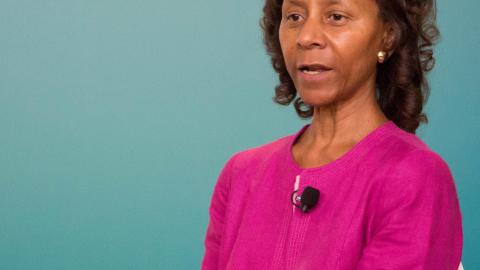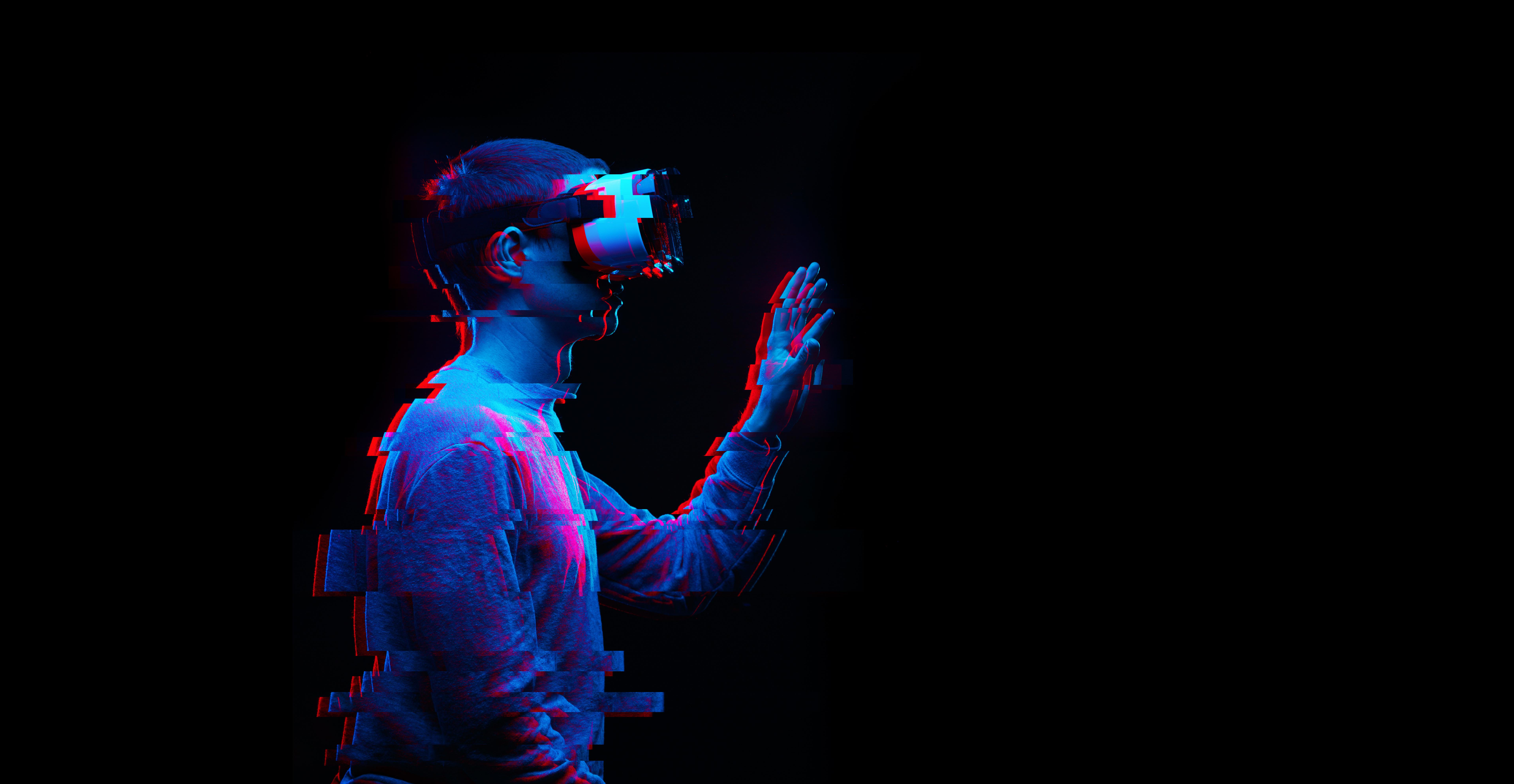The woman who created the technology behind internet calls explains what it takes to innovate

New America / Wikimedia Commons
If you’ve ever wondered how a Zoom call works, you might want to ask Marian Croak, Vice-President of Engineering at Google.
This is the woman who invented “Voice over Internet Protocol”: the technology that has enabled entire workforces to continue to communicate and families and friends to remain in touch throughout 2020’s lockdowns – and inevitably beyond.
It is a lifeline technology that was developed in the 1990s. Croak describes how at the time “many people were sceptical – and they were right for that time. But with a lot of work and a lot of testing and experimentation, you see what we’ve accomplished today.”
She joined moderator, Eniola Mafe, Lead, Vision 2030 at World Economic Forum to talk alongside Schwab Foundation awardee, Lindiwe Matlali, Chief Executive Officer at Africa Teen Geeks and Schwab Foundation awardee at the Pioneers of Change Summit. They revealed insights into what it takes to innovate, why kids are an inspiration and how not fitting in can be an advantage.
Here’s what they said.
Is the worst of times the best of times for innovation?
Croak spoke about history and seeing this moment in time as part of a trajectory of bursts of innovation that happen at difficult times. “There are scientific revolutions where people have these amazing paradigm shifts. It typically happens at periods of great turmoil – everyone is very motivated for something new and something to alleviate the chaos.”
In my own personal life, most of what I’ve done that has an impact on others is typically at times of stress and difficulty. I think we can benefit from this horrible time in history.
—Marian Croak, Vice-President of Engineering at Google
If at first you don’t succeed, what’s next?
Both women spoke of hard work and determination. Matlali said, “You are often focused on arrival – but the journey is just as important. The only way to get doors to open is to be impressive and work so hard that you can’t be ignored.”
While for Croak, it is about having the right mindset and the confidence to know that you can fix things that are broken.
“You don’t have to be a victim of trouble. You can rise above problems and fix them. In the journey to fix them, it involves failure. Things evolve and you have to keep experimenting and perfecting them.”
She says the current situation might appear to be a kind of stasis, but that things can and will change because human beings have the power to imagine different scenarios.
“Inventors are just humans. Anyone can have innovative ideas. But we have to share those ideas and collaborate with each other so that they can be realized.”
How do you get a seat at the tech table?
With characteristic modesty, Croak admitted that “leaving a pathway for others to step in” is important, but also revealed that she is quite comfortable with being an outsider.
“Many times I’ve felt it’s really to our advantage that we don’t fit in and that we don’t have that seat at that table. That to me is often a benefit because it allows us to step back and really observe in quite an objective way as to where the gaps are and what’s needed for change. Being part of the group spoils your perspective because there’s a need to confirm, but invention requires you to be different.”
But she conceded, “It’s fine to be the only one – but you don’t want to remain in that position – you want others to come along. I make sure that the generation behind me can climb the ladder as well.”
For Matlali, the example of Marian Croak – a woman of colour succeeding in the tech world – has been significant.
“I have to sell myself all the time,” she said, “If you are black and a woman, you have to prove that you are competent. Moving forward there are ways that we can change that – making sure that people like (Marian) are visible will make it easier for someone like me.”
If you are black and a woman, you have to prove that you are competent.
—Lindiwe Matlali, Chief Executive Officer at Africa Teen Geeks
What can kids teach tech innovators?
Wonder and naivete are powerful tools. Croak argues that children have rich imaginations – which is the fuel of invention. “You need to be childlike. A little naïve and not inhibited by what’s possible.”
Matlali’s work with disadvantaged teenagers brings her directly into this world, where she sees that “children are passionate but hopeful for the future. For them, everything is possible. You want kids to have the imagination and passion for them to achieve their dreams.”
Croak said her motivation for 2021 was to keep her own childlike curiosity going, forgetting about her personal circumstances and focusing on the “painpoints”.
What’s the biggest opportunity for change in a post-pandemic world?
“The most significant thing that I see that will cause things to change – and we hope that they will – is the increased awareness of inequities.” Croak urged the tech community to zero in on that “gift” to see what the world is truly like and where the gaps are. “To address that huge amount of inequity.”
Matlali’s work in education in Africa is one such gap. She said, “knowing that no matter how small the contributions I am making – it makes a difference. Even if it helps one child to have the opportunities that I’ve had – it all came through education. For me, that’s what I want to try do and make sure that as many children as possible can break the cycle of poverty and disadvantage.”
Reprinted with permission of the World Economic Forum. Read the original article.





